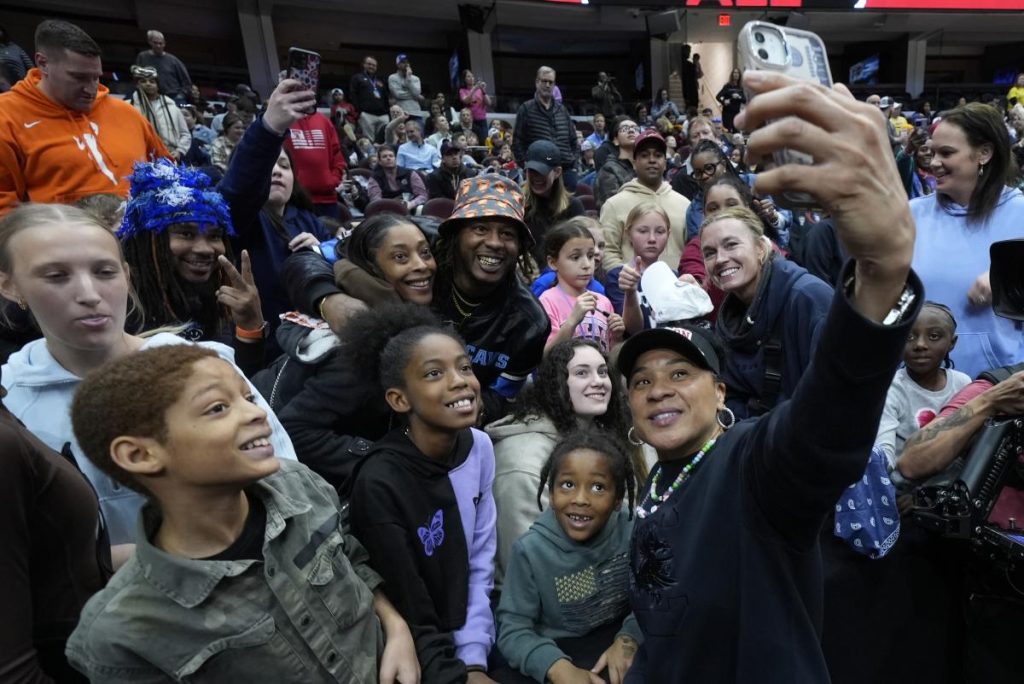South Carolina women’s basketball coach Dawn Staley expressed her belief that transgender athletes should be allowed to compete in women’s sports at a news conference before her team played for the national championship. Staley emphasized that anyone who considers themselves a woman should have the opportunity to play sports, regardless of their gender identity. The topic of transgender athletes in women’s sports has sparked controversy, with some arguing against allowing transgender athletes to compete on girls’ and women’s teams. A federal lawsuit against the NCAA was filed by current and former women’s college athletes last month, accusing the organization of violating their rights by permitting transgender women to participate in women’s sports.
Iowa coach Lisa Bluder avoided giving a direct opinion on the issue of transgender athletes in women’s sports, stating that her focus was on the upcoming championship game and her players. The debate on transgender athlete participation has led to at least 20 states enacting bans on transgender athletes playing on K-12 and collegiate sports teams. The Biden administration has proposed a rule that would forbid outright bans on transgender athletes, citing Title IX as grounds for prohibiting discrimination based on gender identity in sports. The NCAA revised its policies on transgender athlete participation in 2022 to align with national and international sports governing bodies, with the third phase of the revised policy set to be implemented later in the year.
Staley, known for her advocacy for women’s sports and accomplishments as a coach, acknowledged the political nature of the question on transgender athletes and the potential backlash to her response. Despite the controversy surrounding the topic, Staley stood by her belief that all individuals who identify as women should have the opportunity to play sports, regardless of their gender at birth. The debate over transgender athletes in women’s sports continues to be a divisive issue, with strong opinions on both sides of the argument. Staley’s stance highlights the complexities and challenges of navigating this contentious issue within the realm of competitive sports.
The impact of transgender athlete inclusion in women’s sports extends beyond the realm of collegiate athletics, with broader implications for gender equity in sports and societal perceptions of gender identity. The lawsuit against the NCAA and efforts by state governments to implement bans on transgender athlete participation underscore the contentious nature of the debate. As sports organizations and policymakers grapple with how to address the issue of transgender athlete participation, the conversation surrounding gender identity, equality, and inclusivity in sports remains ongoing. Staley’s support for transgender athletes competing in women’s sports reflects her commitment to promoting diversity and inclusion within the sports community, despite the potential backlash and controversy that may arise from her stance.


